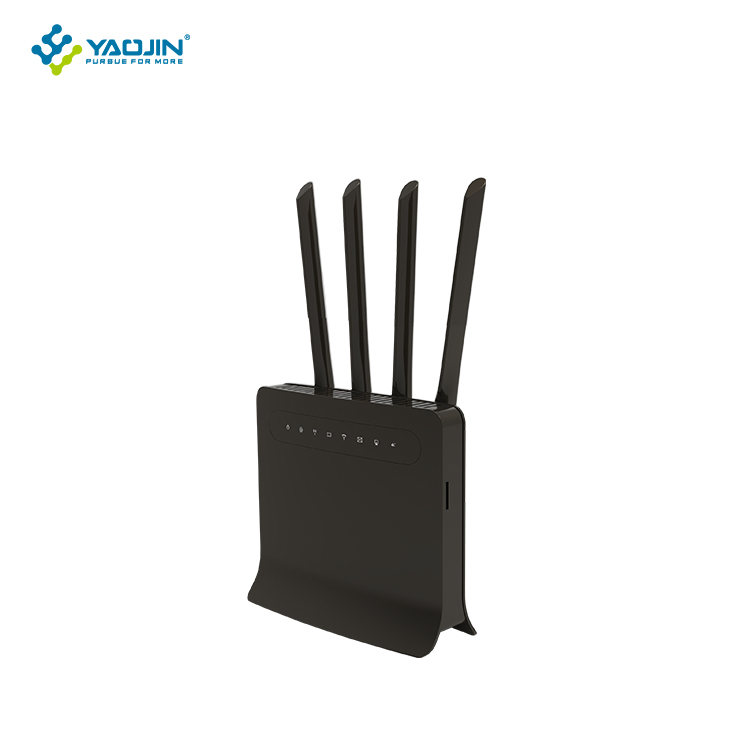Features and aspects associated with 4G routers
2023-12-15
A 4G router is a networking device that uses 4G LTE (Long-Term Evolution) cellular technology to provide high-speed internet connectivity. It serves as a bridge between the 4G cellular network and local Wi-Fi or wired networks, allowing multiple devices to connect to the internet through the 4G network. Here are some key features and aspects associated with 4G routers:
1. High-Speed Internet Connectivity:
- 4G routers leverage 4G LTE technology to deliver fast and reliable internet connections. This makes them suitable for areas where traditional wired broadband services may be unavailable or impractical.
2. Wireless Connectivity:
- 4G routers typically provide Wi-Fi connectivity, allowing devices such as smartphones, tablets, laptops, and smart home devices to connect to the internet wirelessly.
3. Ethernet Ports:
- Many 4G routers come equipped with Ethernet ports, allowing devices that don't have wireless capabilities to connect via a wired connection. This is useful for devices such as desktop computers or gaming consoles.
4. SIM Card Slot:
- 4G routers require a SIM card to establish a connection to the cellular network. The SIM card is usually inserted into a dedicated slot on the router.
5. Portability:
- Some 4G routers are designed to be portable, allowing users to take them on the go. This can be particularly useful for travelers or individuals in temporary locations where a reliable internet connection is needed.
6. Failover and Redundancy:
- In certain applications, 4G routers are used for failover and redundancy. If the primary wired internet connection fails, the router can switch to the 4G connection to maintain internet connectivity.
7. Load Balancing:
- Some advanced 4G routers support load balancing, distributing internet traffic across multiple connections. This can include both the 4G cellular connection and a wired broadband connection if available.
8. External Antennas:
- To enhance signal strength and reception, some 4G routers have external antenna connectors. This allows users to attach external antennas for better performance in areas with weaker signals.
9. Security Features:
- 4G routers typically include security features such as WPA/WPA2 encryption for Wi-Fi connections, firewall capabilities, and Virtual Private Network (VPN) support to secure data transmissions.
10. Management Interface:
- Users can typically configure and manage the 4G router through a web-based interface. This interface allows users to set up security settings, manage connected devices, and monitor network performance.
11. Carrier Compatibility:
- 4G routers may support different frequency bands and be compatible with specific carriers. It's important to ensure that the router is compatible with the 4G network provided by the user's chosen mobile carrier.
12. Dual-Band Wi-Fi:
- Some 4G routers offer dual-band Wi-Fi support, providing both 2.4GHz and 5GHz bands for improved wireless performance and reduced interference.
When choosing a 4G router, it's important to consider factors such as network compatibility, coverage in the intended location, data plans offered by the cellular carrier, and the specific features that align with your connectivity needs.



